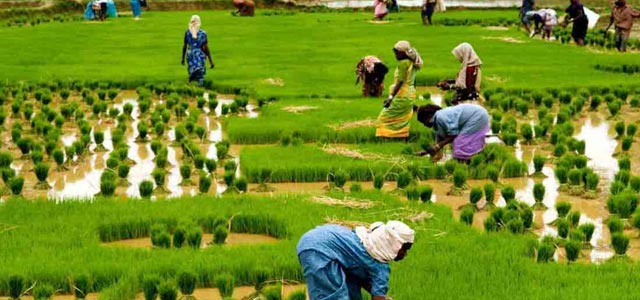IMPACT OF GST ON AGRICULTURE
Impact of GST on agricultural sector is foreseen to be positive. Agricultural sector is the largest contributing sector the overall Indian GDP. It covers around 16% of Indian GDP and provides employment to majority of population of India. It is highly probable that GST shall resolve the issue of transportation. Further, GST provide India with its first National Agricultural Market (NAM) for the agricultural goods.
CURRENT TAX LAWS:
There are certain food items like rice, sugar, salt, wheat, flour which are exempted from CENVAT. Under the state Value Added Tax (VAT), cereals and grains are taxed at the rate of 4%. Agricultural products go through a lot of licensing, no of indirect taxes (VAT, excise duty, service tax) under the current tax laws.
This VAT is presently applicable to all the agricultural goods at each state; it passes through prior to final consumption. However, there certain exemptions for certain unprocessed food products like meat, eggs, fruits, vegetables etc. are available from state VAT.
NATIONAL AGRICULTURAL MARKET (NAM):
A scheme for the promotion of National Agricultural Market (NAM) is introduced by the central
Government will require all the farmer (and traders) in the regulated markets with a common e-commerce platform for a transparent and impartial trade of agri-commodities. As VAT and APMC (Agricultural produce market committee) law’s, varies from state to state, implementation of NAM scheme would be challenging.
With this, indirect taxes levied on agricultural products, would be subsumed under GST. GST would provide each trader, the input credit for the tax paid on every value addition.
IMPACT:
- The sector will be exempted from undertaking the new GST compliances.
- All basic agriculture goods (not processed) would not be charged to tax in GST if was not chargeable under existing VAT Laws.
- Service taxwill also be exempted in various services related to agricultural produce.
- The new definitions of agriculture and agriculturist are provided by GST in section 2(7) and 2(8) respectively.
- An agriculturist would come under non-taxable person.
- Will reduce the time taken for inter-state transportation
- Shortages in agricultural goods which are imported as domestic produce which could not fulfill the requirement are charged with custom duty now. As custom duty would not be subsumed in GST, it would continue to be charged.
- As the exemption under VAT is limited to unprocessed food, the main impact that GST in agriculture would bring is the inflation with currently 4% VAT being increased to 8% on many food items including cereals and grains.

